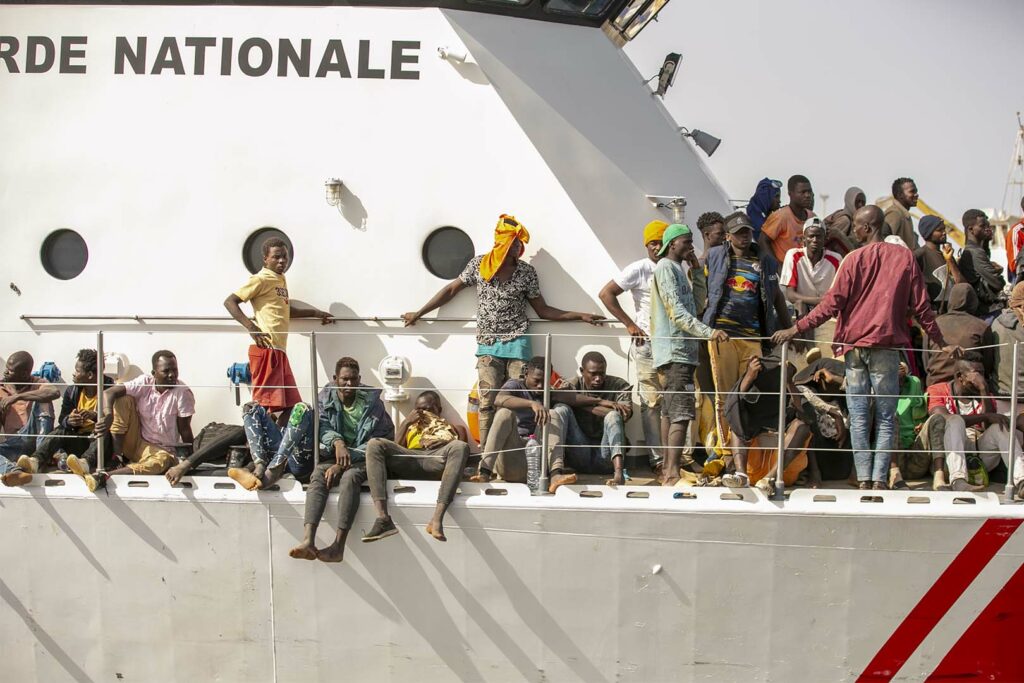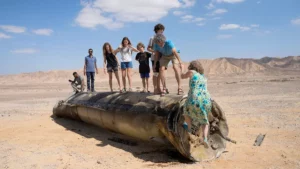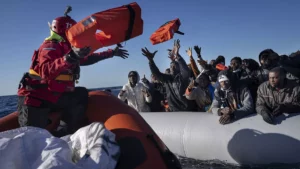Tunisia: EU Agrees to Release $135m in Effort to Curb Migration

The European Commission announced $135m in assistance to Tunisia on Friday under a controversial memorandum of understanding signed with the North African country in July.
The financial assistance is meant to prop up Tunisia’s crisis-hit economy and help the country to stop migrants from heading to the EU. More than 10,000 migrants have arrived at the Italian island of Lampedusa in recent weeks.
The aid includes $64m in budget support and about $71.5m for an “operational assistance package on migration”.
The money “will now be disbursed in the coming days and contracted and delivered swiftly”, the commission said.
Italy’s right-wing Prime Minister Giorgia Meloni has been pushing the European Union to fulfil the agreement that the European Commission President, Ursula von der Leyen, brokered in July.
The EU agreed to pay the first instalment despite Tunisia banning an EU delegation from visiting the country last week.
Mounir Satouri, a French member of the European Parliament’s Committee on Foreign Affairs, called the decision a “slap in the face to parliamentary diplomacy”.
Speaking to Middle East Eye, Satouri said “this is the first time since 2011 that it has not been possible to simply exchange views, to meet the players in the country’s political and associative life”.
This year between 1 January and 23 July, more than 84,300 individuals arrived in Italy by sea, a 144 percent increase from the preceding year. Some 66 percent of these arrivals made landfall on Lampedusa, up from the 48 percent recorded during the same period in the previous year.
This surge can be attributed, in part, to the escalating numbers of arrivals from Sfax in Tunisia, which has now surpassed Libya as the principal departure point for refugees embarking on the perilous journey across the central Mediterranean to reach Europe.
Based on data from the United Nations High Commissioner for Refugees, 58 percent of refugee sea crossings in the first three months of 2023 originated from Tunisia.
‘Incomprehensible’ deal
German Foreign Minister Annalena Baerbock, in a letter to the European Commission dated 2 August, expressed “incomprehension” at the deal signed with Tunisia.
“Democracy, human rights and the rule of law must guide us in our cooperation – something that was not given suitable consideration in the agreement with Tunisia,” she wrote.
“The MoU with Tunisia cannot become a template for further agreements,” she added.
Last week, MEE reported that Sub-Saharan Africans in Tunisia are increasingly being denied emergency food and water supplies in the government’s latest move to crack down on migration at the behest of the Tunisian President Kais Saied.
The plight of migrants, mainly from Sub-Saharan countries, is the “worst” in modern Tunisian history, Nicholas Noe, a senior visiting fellow at Refugees International, told MEE.
Earlier this year, Human Rights Watch (HRW) reported that the Tunisian police, military, national guard and coastguard have been involved in grave violations against Black African migrants, refugees and asylum seekers.
Beatings, use of excessive force, some cases of torture, arbitrary arrests and detention, collective expulsions, dangerous actions at sea, forced evictions and theft of money and belongings are all examples of abuses documented by HRW.
“Tunisian authorities have abused Black African foreigners, fuelled racist and xenophobic attitudes, and forcibly returned people fleeing by boat who risk serious harm in Tunisia,” Lauren Seibert, a refugee and migrant rights researcher at HRW said.
Despite a growing body of evidence about Tunisia’s human right abuses towards migrants, the European Commission last week defended the arrangement.
European Commissioner Oliver Varhelyi accepted that a “number of recent developments were worrying” in Tunisia but nevertheless argued that the “new global and strategic partnership with Tunisia is necessary”.
“The socio-economic situation [in Tunisia] makes it all the more relevant for the European Union to engage strongly in the region,” said Varhelyi.
Source : Middle East Eye





